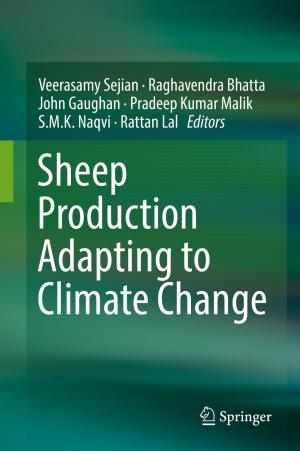Quality Function Deployment for Buildable and Sustainable Construction
Nonfiction, Science & Nature, Technology, Construction & Construction Trades, Science, Biological Sciences, Environmental Science| Author: | Singhaputtangkul Natee, Sui Pheng Low, Evelyn A. L. Teo | ISBN: | 9789812878496 |
| Publisher: | Springer Singapore | Publication: | October 16, 2015 |
| Imprint: | Springer | Language: | English |
| Author: | Singhaputtangkul Natee, Sui Pheng Low, Evelyn A. L. Teo |
| ISBN: | 9789812878496 |
| Publisher: | Springer Singapore |
| Publication: | October 16, 2015 |
| Imprint: | Springer |
| Language: | English |
This book focuses on the implementation of Quality Function Deployment (QFD) in the construction industry as a tool to help building designers arrive at optimal decisions for external envelope systems with sustainable and buildable design goals. In particular, the book integrates special features into the conventional QFD tool to enhance its performance. These features include a fuzzy multi-criteria decision-making method, fuzzy consensus scheme, and Knowledge Management System (KMS). This integration results in a more robust decision support tool, known as the Knowledge-based Decision Support System QFD (KBDSS-QFD) tool. As an example, the KBDSS-QFD tool is used for the assessment of building envelope materials and designs for high-rise residential buildings in Singapore in the early design stage. The book provides the reader with a conceptual framework for understanding the development of the KBDSS-QFD tool. The framework is presented in a generalized form in order to benefit building professionals, decision makers, analysts, academics and researchers, who can use the findings as guiding principles to achieve optimal solutions and boost efficiency.
This book focuses on the implementation of Quality Function Deployment (QFD) in the construction industry as a tool to help building designers arrive at optimal decisions for external envelope systems with sustainable and buildable design goals. In particular, the book integrates special features into the conventional QFD tool to enhance its performance. These features include a fuzzy multi-criteria decision-making method, fuzzy consensus scheme, and Knowledge Management System (KMS). This integration results in a more robust decision support tool, known as the Knowledge-based Decision Support System QFD (KBDSS-QFD) tool. As an example, the KBDSS-QFD tool is used for the assessment of building envelope materials and designs for high-rise residential buildings in Singapore in the early design stage. The book provides the reader with a conceptual framework for understanding the development of the KBDSS-QFD tool. The framework is presented in a generalized form in order to benefit building professionals, decision makers, analysts, academics and researchers, who can use the findings as guiding principles to achieve optimal solutions and boost efficiency.















